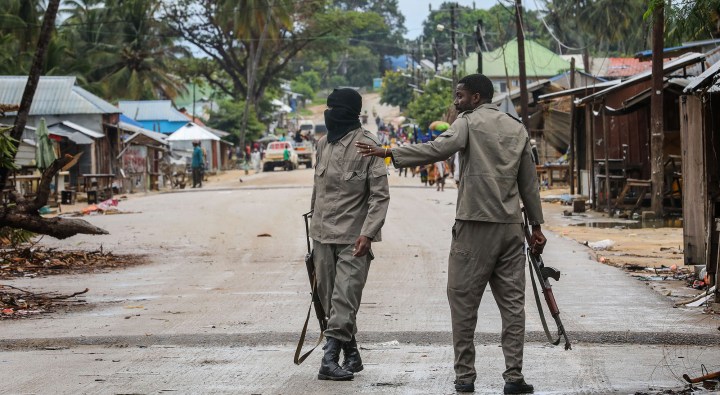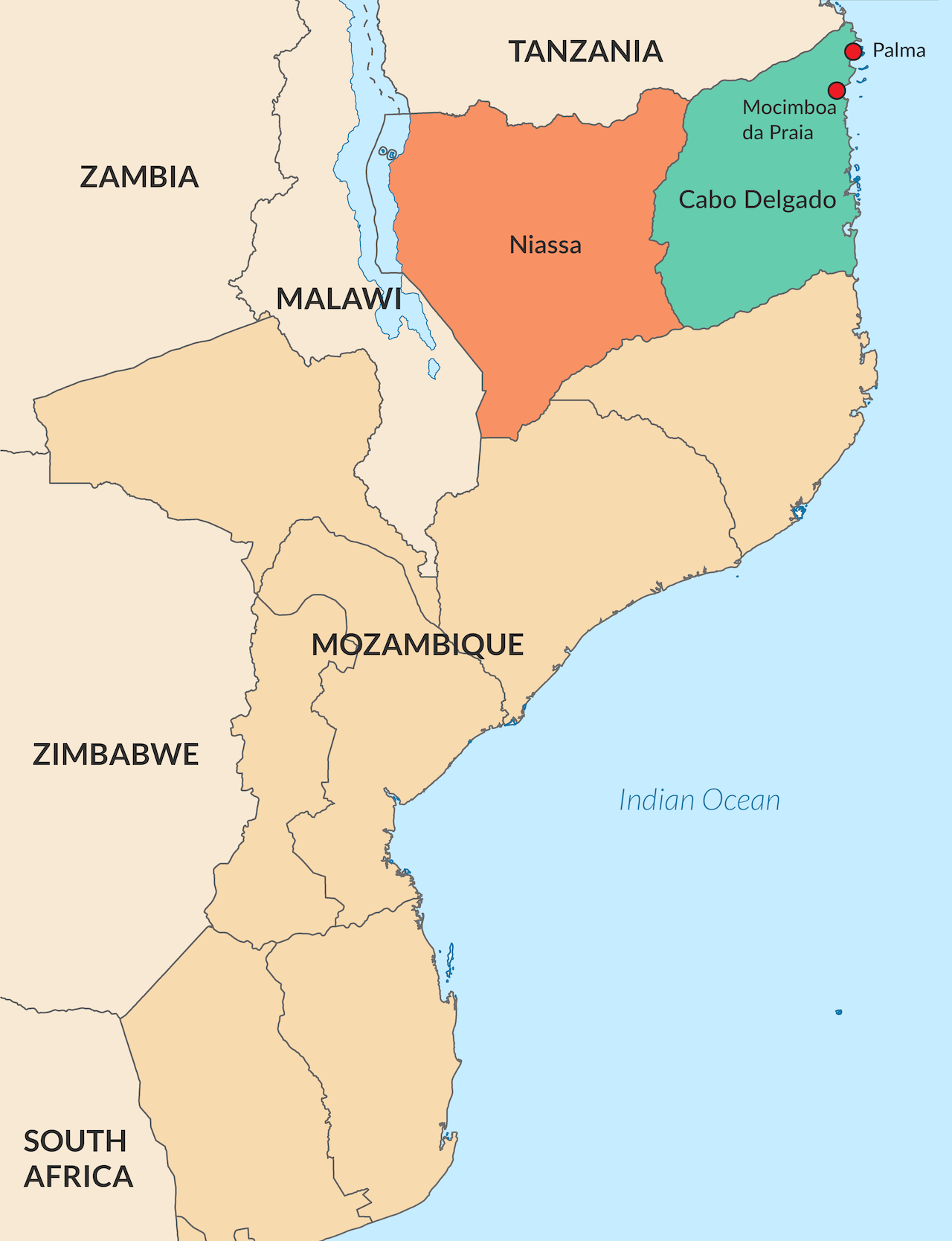ISS TODAY ANALYSIS
France’s exit from the Sahel gives Mozambique food for thought on military coordination and cooperation

Approaches and strategies to multinational troop interventions against localised violent extremist insurgencies require more focus on intelligence-led operations in order to deliver peace and security.
French president Emmanuel Macron’s recent decision to withdraw troops from Mali nine years after first intervening in the conflict against jihadi separatists sparked debate across Africa.
The failure of Operations Barkhane and Takuba to stem the spread of violent extremism begs the question: can big multinational troop interventions against the type of terror groups in the Sahel and northern Mozambique, for example, ensure lasting peace and security?
In Mozambique, around 1,000 troops of the Southern African Development Community Mission in Mozambique (Samim) were deployed in mid-2021. Together with Mozambican security forces, they initially succeeded in driving terror groups from their bases, reopening key roads and protecting some villages in the hinterland of Cabo Delgado province. Another 2,000 Rwandan troops are securing areas around Palma and the Afungi Peninsula — the base of activities for liquid natural gas (LNG) projects in Cabo Delgado’s Rovuma basin.
The province is far from secure, however, and few internally displaced people have returned to their homes. Attacks have also spread westward from Cabo Delgado to neighbouring Niassa province.
Sites of violent extremism in northern Mozambique

Sites of violent extremism in northern Mozambique. (Graphic: Supplied by ISS Today)
Following President Cyril Ramaphosa’s visit to Mozambique last month, Samim’s South African contingent, deployed alongside soldiers from Botswana, Tanzania and Lesotho, is being beefed up. Zambia has also apparently promised air support, along with Angola. This up-scaling could increase the military intervention to 3,000 troops, as SADC intended in April 2021. Funding is being sought from the European Union and the African Union Peace Fund, among others.
With this mission, SADC got at least one thing right. Instead of opting for non-African interventions, Mozambique’s neighbours dug into their already heavily constrained defence budgets to fund the initial deployment.
Still, while SADC provided a prompt regional solution once it got the green light from Maputo, the strategy is insufficient. It needs more focus on intelligence-led operations, developing northern Mozambique and tackling the roots of the crisis.
Poverty and unemployment are high, access to land and resources is contested, and there is political infighting among the ruling elite over lucrative deals in Cabo Delgado. Also, dialogue between local officials, business leaders, and extremist groups could be an option when the time is right.
More infantry and heavy military equipment are unlikely to solve the problem in the long term. Surrounding the Afungi peninsula with security forces so that LNG activities can proceed — while community frustrations remain and fester — is not the solution. New ISS research shows that Cabo Delgado locals regard the discovery and management of resources such as gas and rubies as among the most important causes of the insurgency.
Good governance and more equitable access to the province’s natural resource wealth are vital for any development and peacebuilding strategies. The answer lies with Mozambique’s political elites and their commitment to stabilising the north and preventing the insurgency from spreading. Without this, hundreds of millions of dollars spent on these initiatives will go to waste. Illicit activities in Cabo Delgado and the involvement of political and business networks — while highly sensitive — must also be curbed.
Better cooperation between the multiple external actors on the ground in northern Mozambique is also crucial. SADC, for example, deployed its military mission, which is a part of the African Standby Force, without first tabling it for discussion at the African Union (AU) Peace and Security Council. It is only now that SADC is approaching the AU for access to the Peace Fund and assistance with mobilising resources.
Various United Nations (UN) agencies are involved in a myriad of initiatives and humanitarian projects in Cabo Delgado, but there is — at least publicly — little evidence of cooperation between SADC, the AU and the UN.
Few, if any discussions at the heads of state level have happened between SADC leaders and Rwanda to coordinate the foreign military intervention in Cabo Delgado. Rwanda’s president Paul Kagame has not been invited to any of the many SADC summits devoted to the Mozambique deployment over the past year. The question of how Rwanda is funding its troop presence has also not been resolved.
Many of the challenges emerging in Mozambique have also confronted Mali and the wider Sahel region. These include the complexity of different and poorly coordinated foreign interventions, the lack of synergy among humanitarian, military and peacebuilding actors, and a focus on military deployments instead of root causes.
The need for holistic approaches that recognise the link between security, governance and development has been highlighted for both the Sahel and Mozambique.
Southern Africa must do everything possible to prevent violent extremism from taking root in the region. The attacks have shattered lives and livelihoods in Cabo Delgado and pose a real threat to adjacent provinces and neighbouring countries such as Malawi and Tanzania.
Cabo Delgado desperately needs all the economic upliftment it can get, but its image as a safe investment destination has been shattered. A crisis like the one facing the Sahel would be devastating for Mozambique and the Southern African region. DM
Liesl Louw-Vaudran, Senior Researcher and Project Leader, Southern Africa, Institute for Security Studies (ISS).
First published by ISS Today.



















 Become an Insider
Become an Insider
Comments - Please login in order to comment.